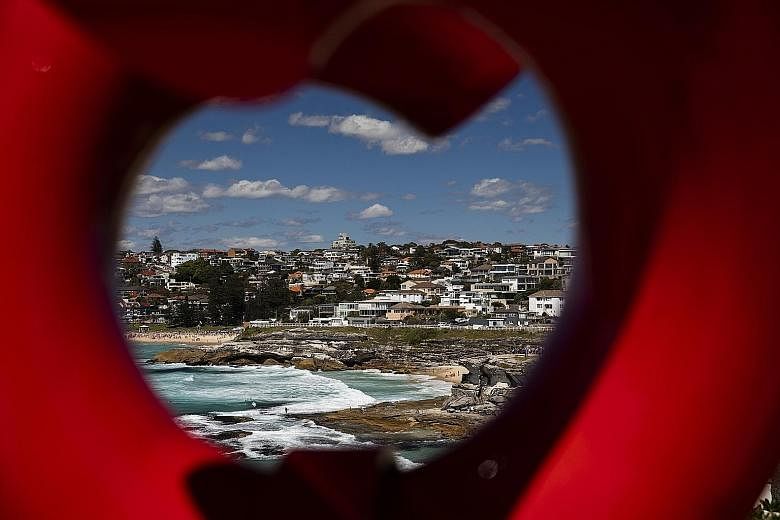In July 2017, Australia's booming property market experienced its steepest drop in decades, a fall fuelled by tighter lending standards.
Up to then, values in Sydney had climbed 75 per cent in just five years.
But the move by the financial services regulator resulted in a dip in prices in the most expensive property markets - Sydney and Melbourne. By April this year, the two cities had recorded a 14 per cent and 10 per cent fall respectively from their peaks.
Now, just as suddenly, the market is surging again, marking one of the sharpest recoveries on record. In the past three months, prices increased by 5 per cent in Sydney and 5.5 per cent in Melbourne.
The average property price in Australia - at a low point in June - has since increased by about 3 per cent.
But this renewed surge is leaving Australians with mounting levels of debt and prompting questions about whether the pouring of borrowings into property are beneficial to productivity and growth.
The turnaround appeared to begin with the ruling Coalition's surprise federal election victory in May. The opposition Labor Party, which had planned to remove tax breaks for property investors, had been widely tipped to win.
Prime Minister Scott Morrison's victory seemed to improve sentiment among home buyers, leading to renewed interest in the market.
Perhaps more significantly, the financial services regulator loosened lending restrictions in July, effectively allowing borrowers to take out larger mortgages.
And this came amid a series of interest-rate cuts by the Reserve Bank reaching a record low of 0.75 per cent. The central bank revealed last week that it seriously considered a further cut at its most recent meeting due to poor retail sales and the weak outlook for wages.
All this has led to a renewed surge, especially in Sydney and Melbourne, where as many as 80 per cent of listed properties have been selling each week, up from a national clearance rate of just 42 per cent a year ago.
But some experts are questioning the broader economic impact of the nation's obsession with property, saying current interest rates are fuelling prices of existing houses rather than adding to productivity.
Mr Philip Chronican, the chair of the National Australia Bank, one of the nation's largest banks, told a parliamentary hearing this month that recent interest-rate cuts had failed to produce big leaps in consumer spending or business investment.
"My concern about the current very low level of interest rates is that we have largely exhausted our firepower on monetary policy and that, if we want to see growth in the economy, we will need to look at other forms of growth-promoting activity," he said.
Australia's booming mortgages, combined with stagnant wages, have left it with record levels of household debt. Research by the National Australia Bank released last week found average household debt was 202 per cent of incomes. Switzerland and Australia have the world's highest household debt.
Economist Gerard Minack said that a recession in the next decade would leave indebted houses vulnerable and pose a "massive" risk to the economy. "Why are Australians so in debt? Because we went out and bought houses," he told ABC News this week. "Not built houses - went out and bought them and pushed the prices up to among the most expensive in the world. It is literally a house of cards."
Last week, the Government made moves to intervene in the sluggish economy, bringing forward A$3.8 billion (S$3.5 billion) in spending on road and rail projects to try to boost jobs and wages.
This followed calls by analysts for the Federal Government to increase spending to try to boost the economy rather than leaving it to the Reserve Bank to drop interest rates, a measure which is proving increasingly ineffective.
"Just two years after the last surge in housing prices killed the hopes and dreams of young Australians, it appears nothing has been learnt," commentator Shane Wright wrote in The Sydney Morning Herald earlier this month.
"The logical conclusion of extreme monetary policy intervention and the refusal to engage in fiscal policy is now playing out at the Saturday auctions in the suburbs of Sydney and Melbourne."

